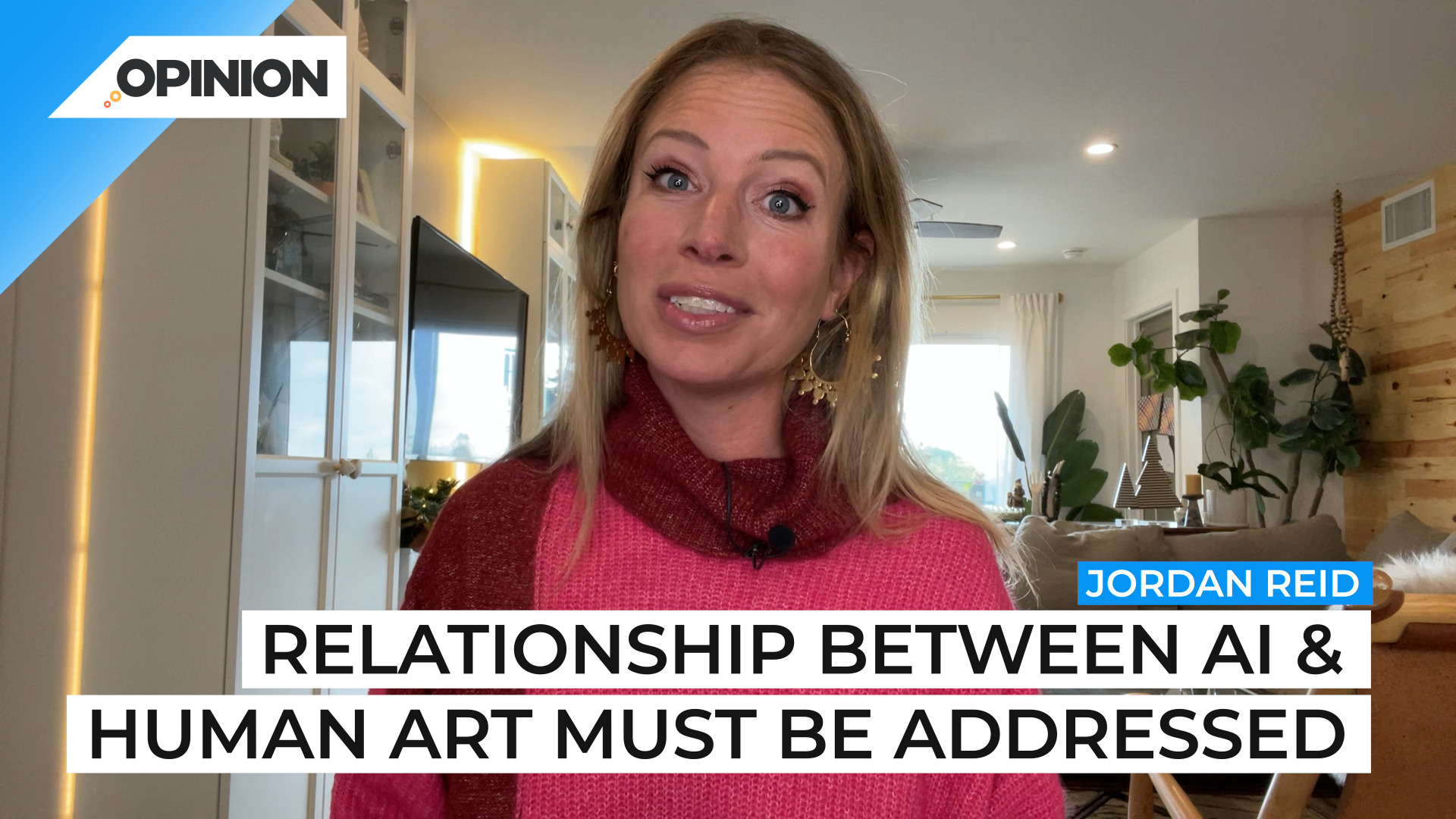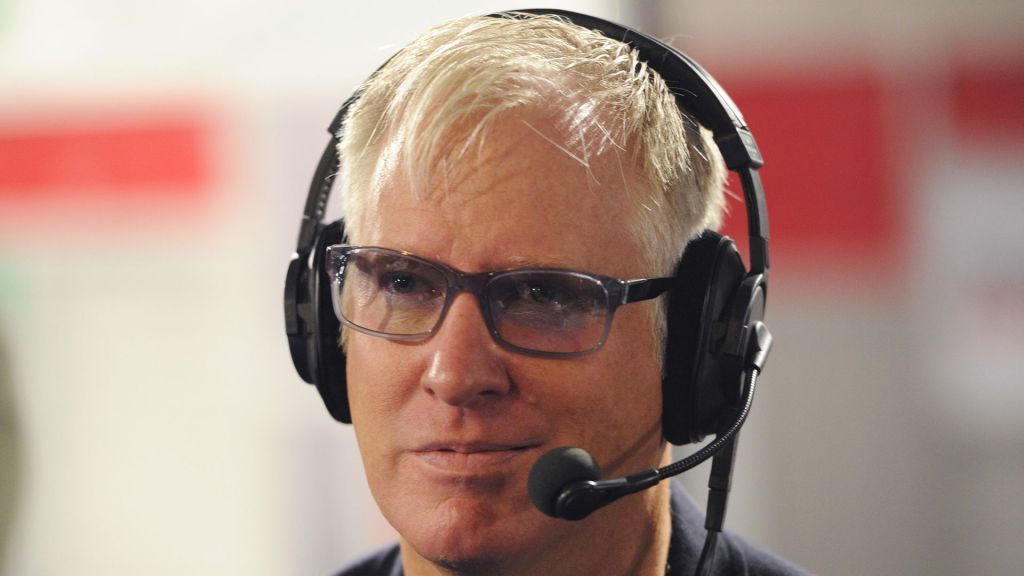
Commentary
-
Our commentary partners will help you reach your own conclusions on complex topics.
For the past week or so, the Internet has been aflutter with talk of Lensa, an app that uses AI to combine assorted images of you into so-called “magic avatars,” in which you can see what you’d look like as…essentially, an artistic masterpiece. The AI creates images of you in various styles, including anime, oil paint, and what can best be described as “woodland fairy creature.”
On the surface, this is all pretty fun and harmless, right? Except once I downloaded my images, I noticed something odd – even unsettling.
The pictures didn’t all look like me – some of them looked like Jessica Biel, and others looked like…I mean, I don’t even know what we call this [insert weird robot pic unless it’s too porn-y; I’ll give you two options for what I say here]…but the ones that looked like me…they really looked like me. Like, they captured something – and I don’t want to sound too crazy here – but…something essential. In the eyes. It captured personality.
And I don’t know how I feel about that.
First, going just on the volume of avatars I’ve seen on my feed – the app was apparently downloaded 1.6 million times in November alone – Lensa is collecting a lot of data about a lot of people.
And the creators say that all the data is deleted after the avatars are created, but…come on. I don’t have that optimistic a view of technology. Or humans.
But the app has also raised some fascinating debates about everything from ethics and representation to appropriation.
How the app works is by collecting work from artists all over the Internet, and learning their techniques – then applying them to facial recognition technology.
Which naturally leads to the question: Do the app’s creators have the right to use real artists’ work to train their AI’s “eye,” and then sell that work for a tiny fraction of the price of a real commission?
There’s a similar issue created by AI text generators, which have advanced to the point that they’re able to create output that’s impressive to the point of alarming many.
A recent Atlantic article told the story of a UK professor who used OpenAI technology to generate an entire essay from a prompt…and would have given it a good grade.
If students employ this technology, do they ever really learn the essential skill of writing? Writing is how we teach children to think critically, to develop arguments – and if they can input a prompt into a computer program, doesn’t that change the fundamental structure of…the entire educational system?
It’s a mind-bending problem for sure, and absolutely suggests that the relationship between AI and human art in all forms needs to be addressed…but it’s also more layered than just “AI bad.”
Take the argument of Virginia Heffernan, in the excellent book Magic and Loss – Heffernan holds that changes of this sort (to be clear, she wasn’t talking about AI specifically, or AI art), aren’t inherently “good” or “bad” – they’re just…what’s next.
Emojis and emoticons are essentially now accepted as a sort of hieroglyphic form of written language. And remember how the early users of cameras feared that the technology was in a way stealing their souls? Who’s to say that the new AI technology won’t open doors for artistic expression and experience far beyond what we know today?
Alternatively, who’s to say it won’t just take over the world, Terminator style? Watch this space.
-
Portraying far-left and far-right as equal in ‘Civil War’ is wrong
The movie “Civil War,” which depicts Texas and California seceding from the nation to wage war on Washington, D.C., reflects a what-if scenario fueled by memories of the Jan. 6 Capitol attack. But as the presidential election looms, discussions about civil war have moved beyond theoretical debates to become a serious consideration among some voters.…
-
Why I doubt Trump will be convicted in hush money case
Donald Trump is the first former president to face trial on criminal charges. In the first of potentially four trials, Trump entered a plea of not guilty to 34 counts of falsifying business records. These charges stem from a $130,000 payment made to the adult actress and stripper Stormy Daniels, which aimed to keep her…
-
Political comedy has a role to play in Gaza
Political comedians in the U.S. have sometimes struggled to cover the war in Gaza, which has been defined by tremendous human suffering and high political polarization, none of which seems particularly funny. Comedian Ramy Youssef attempted to tackle some of those issues in an opening monologue of a recent “Saturday Night Live” (SNL) episode. Straight…
-
Republicans don’t care about female voters
Women make up the largest demographic among registered voters in America and consistently participate in elections, with over 68% turning out to vote in the 2020 presidential election. Some political analysts suggest that with the recent reversal of Roe v. Wade, abortion has become a key issue among voters, benefiting Democratic candidates. However, in the…
-
Birth control disinformation confuses young women on social media
A new social media trend may be responsible for spreading online disinformation about women’s birth control. Influencers and content creators have been publishing content that critics say is not only wrong but also potentially dangerous for young women and girls. Straight Arrow News contributor Jordan Reid confronts that disinformation and tries to clarify the pros…
Latest Opinions
-
 DVIDS
DVIDS
Aid package to Ukraine ‘not aimed at achieving victory’
-
 AP Images
AP Images
Poll: Majority of Americans back mass deportation of undocumented immigrants
-
 Getty Images
Getty Images
Trump lawyers admit some actions alleged in indictment are private, not official
-
 Getty Images
Getty Images
EPA coal plant rule cuts emissions 90%, removes 17M homes worth of power
-
 AP Images
AP Images
As 2020 election lawsuits grow, Gateway Pundit files for Chapter 11 bankruptcy
Popular Opinions
-
In addition to the facts, we believe it’s vital to hear perspectives from all sides of the political spectrum.


